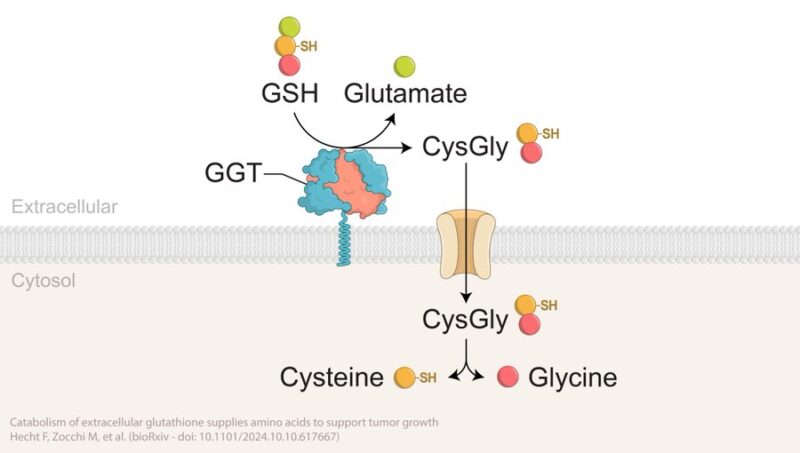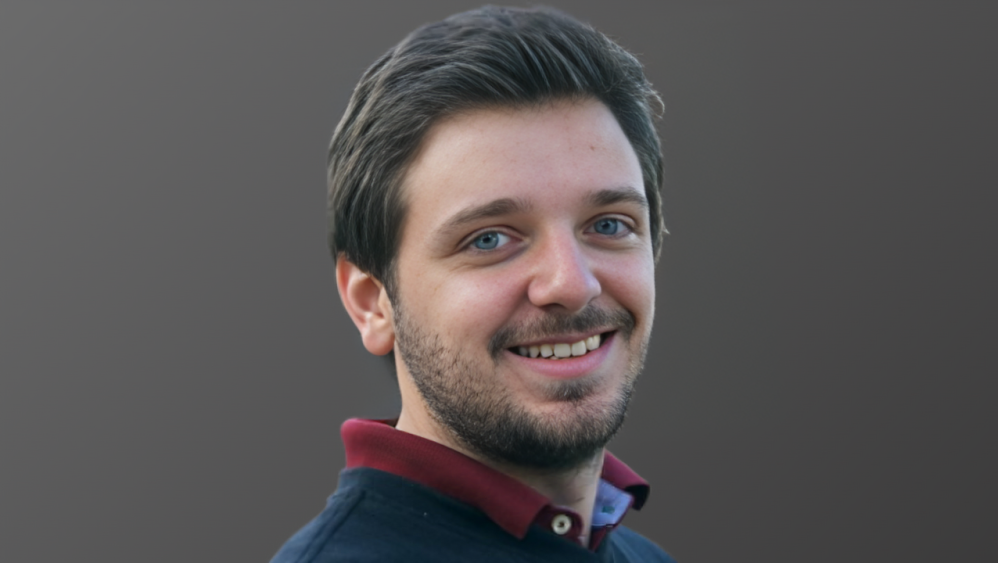Fabio Hecht, Postdoctoral Scholar at the University of Rochester, shared on X:
“Preprint alert! Our new work uncovering that glutathione (GSH) boosts tumor growth by supplying amino acids is now available at bioRxiv! Check it out and follow along for the tweetorial.
Our work stems from our previous observations that mice with whole-body disruption of GSH production (Gclm-KO) develop fewer, smaller tumors. But some questions remain: is tumor’s GSH production needed for its growth? And most importantly: what the hell is GSH doing here?
To answer the first question, we transplanted tumors lacking the ability to produce GSH (Gclc-KO) into wild-type mice and, surprisingly, the tumors grew normally! This shows that the tumor’s intrinsic capacity to produce GSH is dispensable for its growth.
This made us wonder if the tumors were using GSH supplied by other cells and tissues. Indeed, we found that GSH is highly abundant in the tumor interstitial fluid. But how could extracellular GSH even be doing anything if most data suggest that cells do not take up GSH?
We thought the answer could rely on a family of enzymes called gamma-glutamyl-transferases (GGT). These enzymes sit on the outer side of the membrane and break GSH down, generating glutamate and cysteinylglycine, which can be further broken down into cysteine and glycine.

We discovered that, by using these enzymes, cancer cells can overcome cysteine depletion in vitro by scavenging cysteine from exogenously added GSH. Also, when cells acquire their cysteine via GSH breakdown, they are no longer sensitive to inhibitors of cystine uptake.
Finally, we moved in vivo, and observed that systemic treatment with a potent GGT inhibitor decreases the growth of tumor xenografts! The treatment also increases serum GSH and decreases tumor cysteine levels, suggesting the drug has on-target activity.
To check if the drop in tumor cysteine levels was responsible for the tumor reduction, we repeated the experiment but we now supplemented the mice with N-acetyl-cysteine, which partially reversed the effect of the GGT inhibitor.
Together, these findings indicate a non-canonical role for GSH in supporting tumors by acting as a reservoir of amino acids. As potent drugs targeting GGT are available, we believe this mechanism presents great promise for therapeutic applications in cancer treatment.
Huge thanks to our team at the Harris Lab (Isaac Harris) at URochester SMD, and to our amazing collaborators Joshua Munger, DeNicola Lab, Muir Lab, and Coloff Lab! Fabio and Marco.”
Catabolism of extracellular glutathione supplies amino acids to support tumor growth
Authors: Fabio Hecht, Marco Zocchi, Emily T. Tuttle, Nathan P. Ward, Bradley Smith, Yun Pyo Kang, Juliana Cazarin, Zamira G. Soares, Mete Emir Ozgurses, Huiping Zhao, Colin Sheehan, Fatemeh Alimohammadi, Lila D. Munger, Dhvani Trivedi, Gloria Asantewaa, Sara K. Blick-Nitko, Jason J. Zoeller, Ying Chen, Vasilis Vasiliou, Bradley M. Turner, Alexander Muir, Jonathan L. Coloff, Joshua Munger, Gina M. DeNicola, Isaac S. Harris

Dr. Fabio Hecht is a Postdoctoral Scholar at the University of Rochester. Previously, he worked as a Research Scientist at the Federal University of Rio de Janeiro and was a Graduate Student Researcher at Gustave Roussy. He has experience in planning, managing, and supervising biomedical research projects, with expertise in cellular and molecular biology, redox biology, biochemistry, mammalian cell culture, and endocrine physiology.


